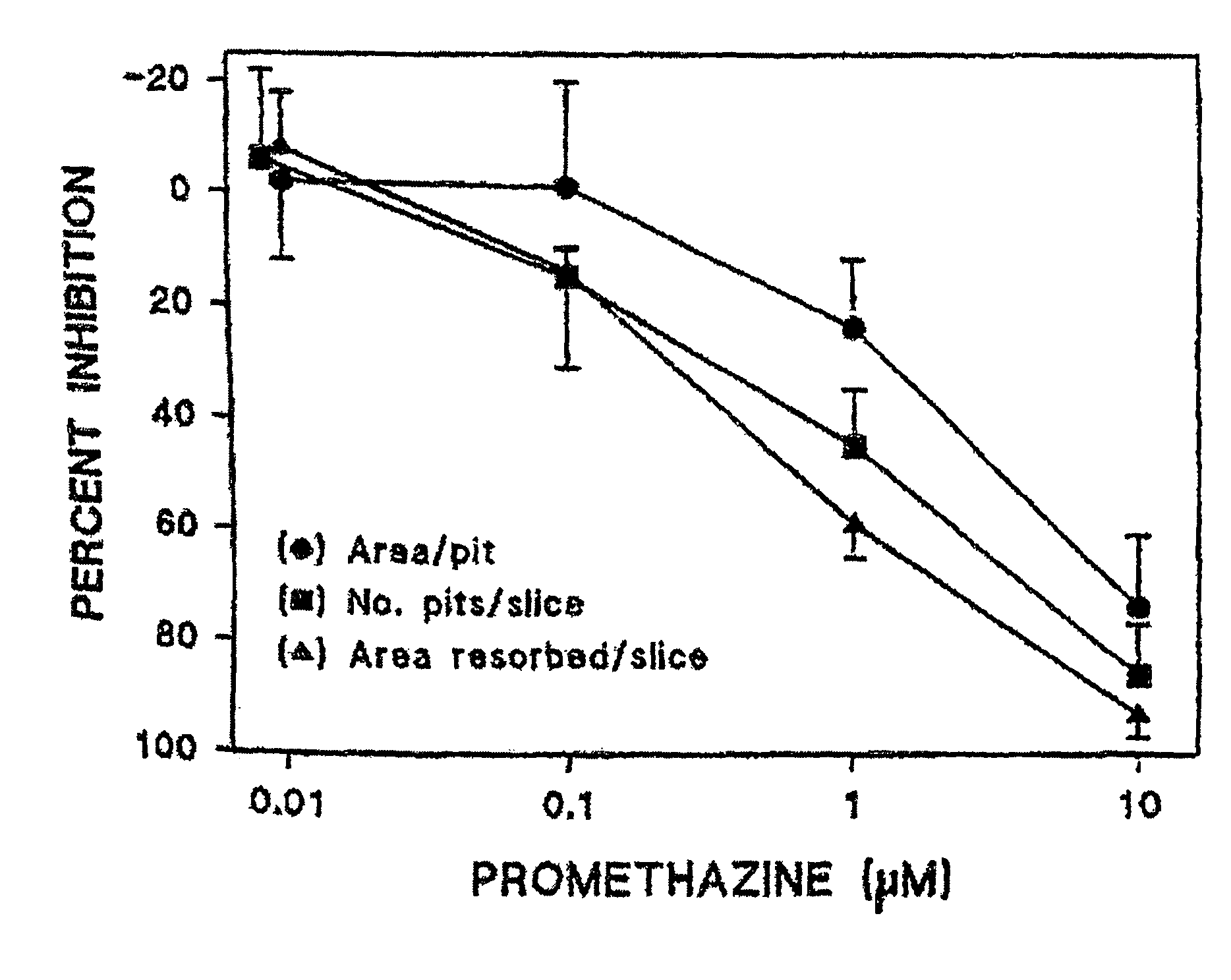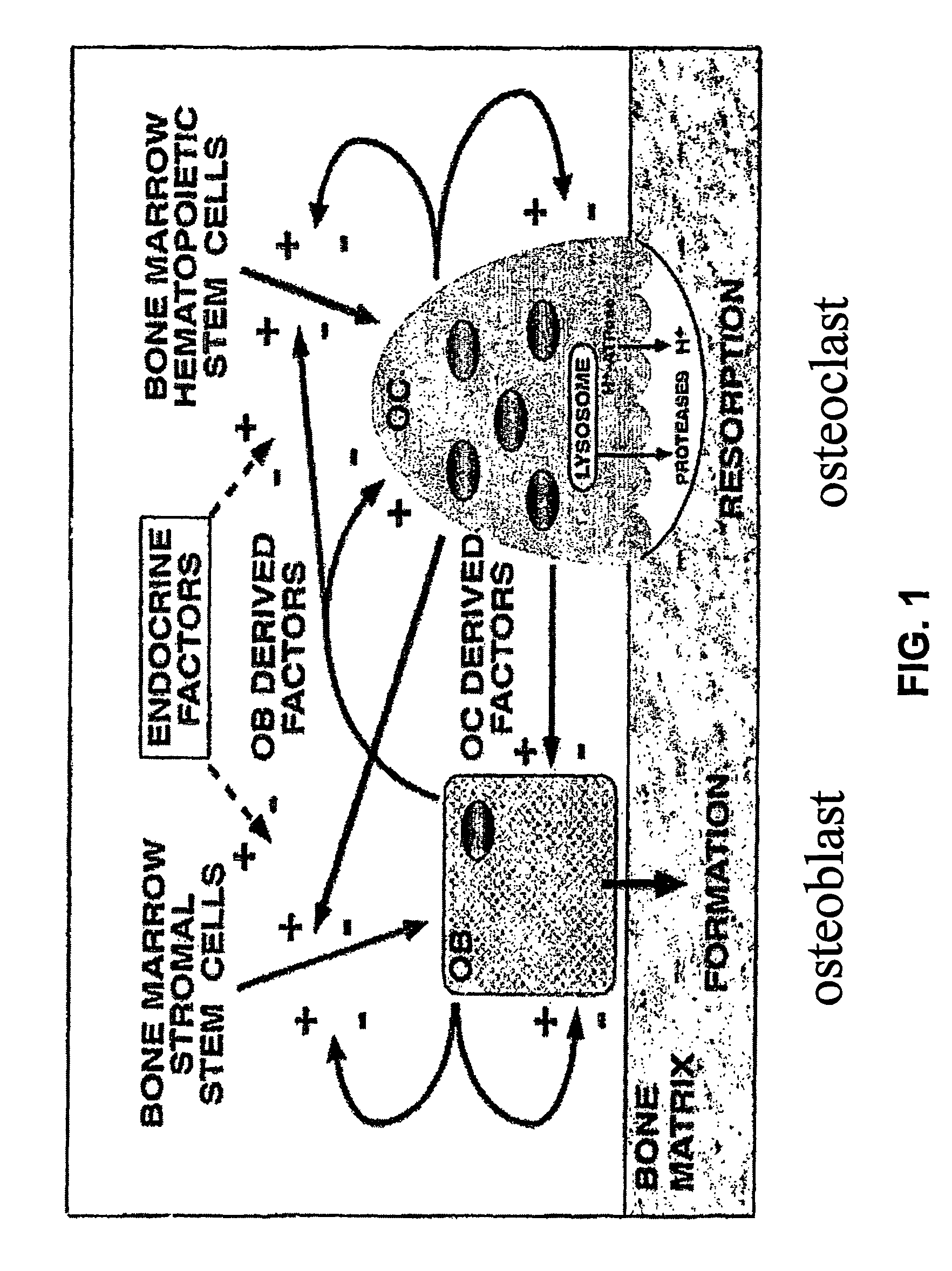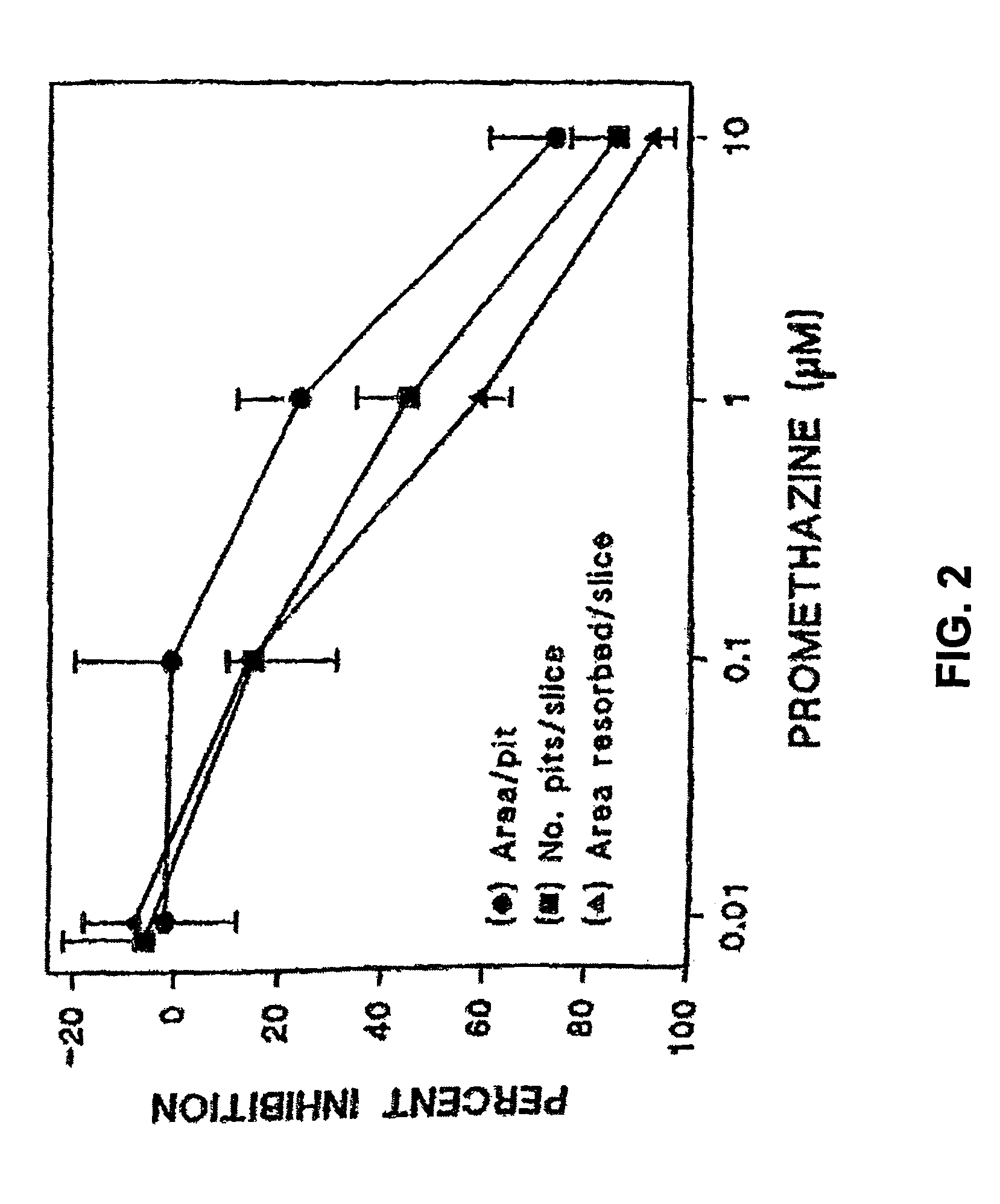Phenothiazine enantiomers as agents for the prevention of bone loss
a technology of phenothiazine and enantiomers, which is applied in the field of osteoporosis and bone, can solve the problems of increasing the risk of fracture, disturbing the balance of bone formation and degradation, and osteoporosis is a significant problem, so as to prevent or treat bone loss and reduce bone loss
- Summary
- Abstract
- Description
- Claims
- Application Information
AI Technical Summary
Benefits of technology
Problems solved by technology
Method used
Image
Examples
example i
Preparation of Promethazine Enantiomers
[0087]Although various methods may be used to prepare promethazine enantiomers, the present example particularly describes methods determined to function well in the resolution and preparation of promethazine enantiomers.
[0088]In the promethazine base conversion, 100 ml ether and 25 ml 2M sodium hydroxide (0.045 mol) was added to promethazine hydrochloride (12.5 g, 0.039 mol; Sigma (lot #128H1474). The resulting suspension was shaken and the ether layer was collected. The aqueous layer was extracted twice with ether. The combined ether layers were dried over magnesium sulfate. Rotary evaporation gave 10 g (0.035 mol) promethazine. Yield 90% (step 1).
[0089]To prepare promethazine-D-tartrate, promethazine (10 g, 0.035 mol) dissolved in 80 ml acetone was heated in a 60° C. bath while dibenzoyl-D-tartaric acid (12.789 g, 0.036 mol) was added. The resulting clear yellow solution was left at ambient temperature for 3 days (step 2). A heavy precipitat...
example ii
Preparation of Additional Phenothiazine Enantiomers
[0096]The present example describes methods determined to function well in the resolution and preparation of additional promethazine enantiomers.
[0097]Trimeprazine (TPZ), obtained from Sigma as the racemate, was resolved by preparative column chromatography using CHIRALCEL® OJ-H® preparative column, eluting with 99.9% methanol / 0.1% diethylamine at room temperature.
[0098]Ethopropazine (EPZ), obtained from Sigma as the racemate ethopropazine hydrochloride, was resolved using the procedures in Example I.
[0099]In other studies, racemic ethopropazine hydrochloride salt was mixed with methylene chloride and 2M sodium hydroxide. The resulting suspension was agitated and the organic layer collected. After drying, the solvent was removed by rotary evaporation to give racemic ethopropazine base (4.0 g, 0.013 mol) that reacted with dibenzoyl-D-tartaric acid (4.4 g, 0.012 mol) in acetone with agitation. A white precipitate was collected after a...
example iii
Inhibition of Histamine Activity by Promethazine Enantiomers
[0101]This example demonstrates that the major anti-histamine activity associated with promethazine resides in the (+) enantiomer.
[0102]H1 receptor antagonist activity can be measured by a reduced production of IL-6 in controlled studies, for example, as described by Delneste et al., (1994), specifically incorporated herein by reference. In the present studies, HUVEC cells were plated and grown to confluence in 6-well plates. At confluence, the cells were treated with either histamine (10−4M); promethazine racemate (10−5 M) and histamine (10−4M); promethazine (+) enantiomer (10−5M) and histamine (10−4M); promethazine (−) enantiomer (10−5M) and Histamine (10−4M) or left untreated (U / T) for 5 hours. The total RNA was isolated using Tri-reagent and subjected to reverse transcription polymerase chain reaction (RT-PCR™) analysis of IL-6 production using semi-quantitative analysis against HPRT expression (control gene).
[0103]IL-6...
PUM
| Property | Measurement | Unit |
|---|---|---|
| area | aaaaa | aaaaa |
| bone strength | aaaaa | aaaaa |
| hydrophilic characteristic | aaaaa | aaaaa |
Abstract
Description
Claims
Application Information
 Login to View More
Login to View More - R&D
- Intellectual Property
- Life Sciences
- Materials
- Tech Scout
- Unparalleled Data Quality
- Higher Quality Content
- 60% Fewer Hallucinations
Browse by: Latest US Patents, China's latest patents, Technical Efficacy Thesaurus, Application Domain, Technology Topic, Popular Technical Reports.
© 2025 PatSnap. All rights reserved.Legal|Privacy policy|Modern Slavery Act Transparency Statement|Sitemap|About US| Contact US: help@patsnap.com



